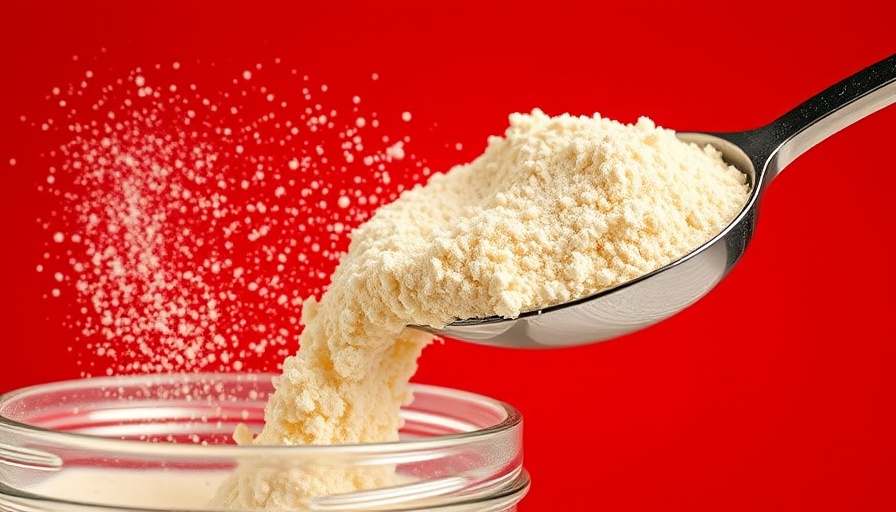
Understanding the Protein Connection
Incorporating enough protein into your diet is crucial, especially when you're on weight-loss medications like semaglutide. As a new study has highlighted, these medications can cause not just fat loss but also a notable reduction in muscle mass. When muscle is lost, metabolism tends to slow down, which can hinder weight-loss goals.
The Importance of Protein in Muscle Retention
Protein is often referred to as a building block for muscles. Scott Keatley, an expert in nutrition, reinforces the idea that protein is essential in stimulating muscle protein synthesis—the body’s way of repairing and building muscle tissue. On the flip side, insufficient protein intake can lead the body to break down muscle for energy, ultimately compromising muscle health and strength.
Recent Research Findings
The recent study presented at ENDO 2025 followed 40 individuals with obesity for three months. Among them, half were on semaglutide, a medication that suppresses appetite, while the other half adhered to a weight-loss program focused on dietary and lifestyle changes. The findings revealed that while those taking semaglutide achieved more significant weight loss, both groups lost a comparable amount of muscle mass.
A striking observation was that individuals in the semaglutide group who were older, female, or consumed less protein experienced more muscle loss. Thus, the recommendation is clear: increasing protein intake can help protect against potential muscle fat loss associated with these medications.
Why You Should Prioritize Protein
As you embark on a weight-loss journey, especially with medications, incorporating more protein-rich foods into your meals can enhance outcomes. Proteins not only preserve muscle mass but also aid in sustaining energy levels, thereby supporting your overall fitness during a calorie deficit.
Practical Tips for Boosting Protein Intake
Boosting your protein can be as simple as incorporating a variety of protein sources into your meals. Opt for lean meats, dairy products, legumes, and plant-based proteins such as tofu and tempeh. Aiming for a balanced approach where you complement your diet not just with calories but with nutritional value will enhance your journey toward fitness and well-being.
Addressing Common Misconceptions about Weight Loss Drugs
There's a commonly held belief that weight-loss medications alone can achieve successful outcomes. However, it's essential to understand that these drugs work best when combined with a nutritious diet and regular exercise. Mistaking medication as a standalone solution may lead to unrealistic expectations and the potential for disappointment in results.
Looking Ahead: Future Trends in Nutrition and Weight Management
As the research into the intersection of weight-loss medication and nutritional guidance continues to evolve, experts emphasize the need for personalized approaches to weight management. Incorporating individualized meal plans based on scientific findings and personal experiences can yield more effective results.
For those considering or currently using weight-loss medications, raising awareness about the importance of protein intake cannot be overstated. Not only does it uphold muscle mass, but it also promotes overall health and well-being.
As we learn from these studies, a proactive approach to wellness, particularly around nutrition, can significantly influence the outcomes of weight-loss journeys.
Don't wait to make your dietary changes! Start paying attention to your protein intake and set yourself up for success in your health and wellness goals.
 Add Row
Add Row  Add Element
Add Element 



Write A Comment